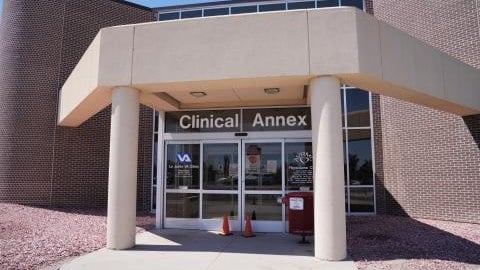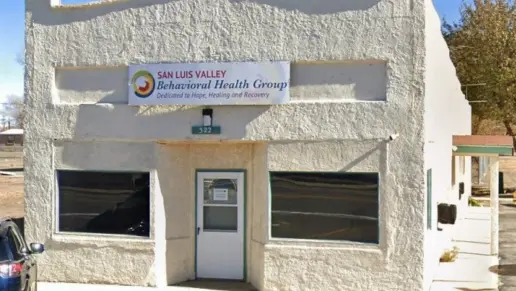thanks to them I have been sober for more than 150 days and I can not believe that I reach this point in my life, I always thought I would never survive without my addictions. The only thing that could improve would be that the staff was a little more friendly, without takin ...
About Crossroads Turning Points Inc
Crossroads Turning Points–Alamosa is a comprehensive alcohol and drug rehab for adults in Alamosa, Colorado. They offer dual diagnosis care in inpatient, outpatient, and aftercare support. Dedicated programming is available for pregnant and postpartum women, adolescents, justice involved persons, parents, young adults, and persons with HIV/AIDS.
Crossroads Turning Points–Alamosa, in Alamosa, Colorado, is an addiction recovery center for adults specializing in inpatient, outpatient, and aftercare services. They also offer dedicated programming for pregnant and postpartum women, adolescents and young adults, justice involved persons, parents, persons with HIV/AIDS, and persons with co-occurring addiction and mental illness.
The inpatient program allows clients to focus on their recovery in a private, home like setting. Clients receive medical and mental health assessments, personalized care plans, and comprehensive case management. They also engage in intensive, trauma informed individual, group, and family counseling. The program also prioritizes recovery focused life skills training.
The outpatient program promotes clients’ long term recovery through a robust continuum of care aligned with clients’ evolving needs. Their step approach encompasses multiple levels of care, including intensive outpatient (IOP), standard outpatient, sober living/residential care, and aftercare support. Alumni may receive peer coaching, career counseling, and referrals for medical, mental health, legal, and social service programs.
Crossroads Turning Points–Alamosa is state licensed and accredited by CARF and SAMHSA. They accept private insurance, Medicaid, and self pay. Sliding scale payment assistance is available.
Latest Reviews
Rehab Score
Gallery
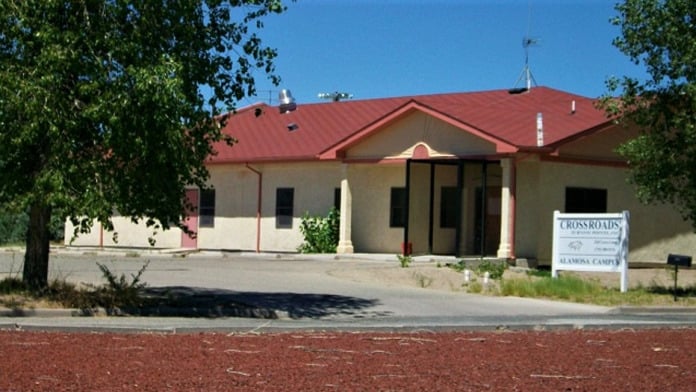
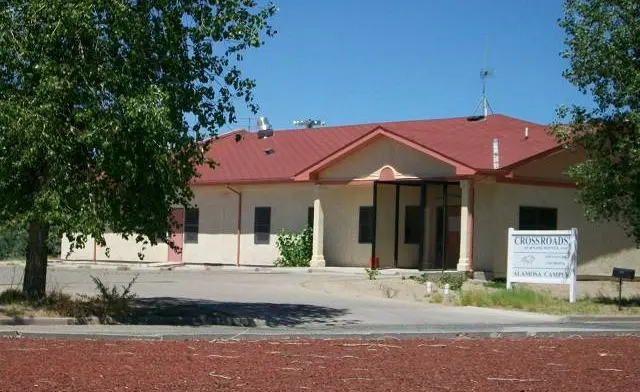
Location
Other Forms of Payment
Private insurance refers to any kind of healthcare coverage that isn't from the state or federal government. This includes individual and family plans offered by an employer or purchased from the Insurance Marketplace. Every plan will have different requirements and out of pocket costs so be sure to get the full details before you start treatment.
Self-pay involves paying for treatment out of your own pocket. You can use savings or credit, get a personal loan, or receive help from family and friends to fund your treatment. If you don't have insurance or your insurance plan doesn't cover a specific program, self-pay can help ensure you still get the care you need.
Financial aid can take many forms. Centers may have grants or scholarships available to clients who meet eligibility requirements. Programs that receive SAMHSA grants may have financial aid available for those who need treatment as well. Grants and scholarships can help you pai for treatment without having to repay.
Sliding scale payments are based on a client's income and family size. The goal is to make treatment affordable to everyone. By taking these factors into account, addiction recovery care providers help ensure that your treatment does not become a financial burden to you or your family, eliminating one barrier to care.
Medicaid is a state based program that helps lower-income individuals and families pay for healthcare. Medicaid covers addiction treatment so those enrolled can use their coverage to pay for rehab. When a program accepts Medicaid the client often pays very little or nothing out of their own pocket.
Addiction Treatments
Levels of Care
Treatments
The goal of treatment for alcoholism is abstinence. Those with poor social support, poor motivation, or psychiatric disorders tend to relapse within a few years of treatment. For these people, success is measured by longer periods of abstinence, reduced use of alcohol, better health, and improved social functioning. Recovery and Maintenance are usually based on 12 step programs and AA meetings.
Professional services are often necessary to recover from addiction. Drug rehab in Colorado provides the expert services needed to address the complex issues of addiction and help individuals start their recovery journey.
Many of those suffering from addiction also suffer from mental or emotional illnesses like schizophrenia, bipolar disorder, depression, or anxiety disorders. Rehab and other substance abuse facilities treating those with a dual diagnosis or co-occurring disorder administer psychiatric treatment to address the person's mental health issue in addition to drug and alcohol rehabilitation.
Opioid rehabs specialize in supporting those recovering from opioid addiction. They treat those suffering from addiction to illegal opioids like heroin, as well as prescription drugs like oxycodone. These centers typically combine both physical as well as mental and emotional support to help stop addiction. Physical support often includes medical detox and subsequent medical support (including medication), and mental support includes in-depth therapy to address the underlying causes of addiction.
Substance rehabs focus on helping individuals recover from substance abuse, including alcohol and drug addiction (both illegal and prescription drugs). They often include the opportunity to engage in both individual as well as group therapy.
Programs



Clinical Services
Group therapy is any therapeutic work that happens in a group (not one-on-one). There are a number of different group therapy modalities, including support groups, experiential therapy, psycho-education, and more. Group therapy involves treatment as well as processing interaction between group members.
Men and women in Colorado have access to customized individual therapy sessions for drug and alcohol addiction treatment. These sessions explore your life experiences and patterns of substance abuse. Your therapist helps you recognize harmful behaviors and thoughts that empower you to make positive changes for lasting recovery.
Trauma therapy addresses traumatic incidents from a client's past that are likely affecting their present-day experience. Trauma is often one of the primary triggers and potential causes of addiction, and can stem from child sexual abuse, domestic violence, having a parent with a mental illness, losing one or both parents at a young age, teenage or adult sexual assault, or any number of other factors. The purpose of trauma therapy is to allow a patient to process trauma and move through and past it, with the help of trained and compassionate mental health professionals.
During family therapy sessions, family members in Colorado work with therapists to understand addiction as a disease that has affected the entire family. This approach fosters empathy and reduces blame on any one member. Promoting this collective effort helps to support the recovery process.
Life skills are traits you need to be successful during recovery, such as managing stress and interpersonal relationships. During rehab treatment in Colorado, you and your therapist will identify any skills that need to be developed and work on methods to strengthen them.
Amenities
-
Residential Setting
-
Private Rooms
-
Mountain Views
-
Gardens
-
Walking Trails
Staff & Accreditations
Staff
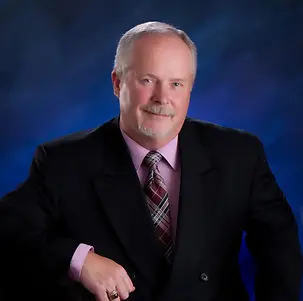
Chief Executive Officer
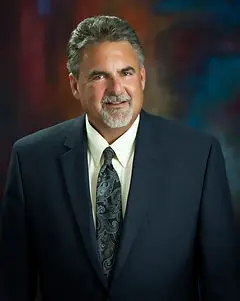
Chief Financial Officer

Chief Administration Officer
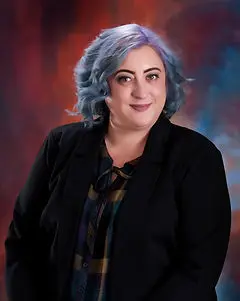
Chief Clinical Officer

Chief Officer of Operations and Innovation

Corporate Councel
Accreditations

The Substance Abuse and Mental Health Services Administration (SAMHSA) is a branch of the U.S. Department of Health and Human Services. Established in 1992 by congress, SAMHSA's mission is to reduce the impact of substance abuse and mental illness on American's communities.
SAMHSA Listed: Yes
Contact Information
2265 Lava Lane
Alamosa, CO 81101
